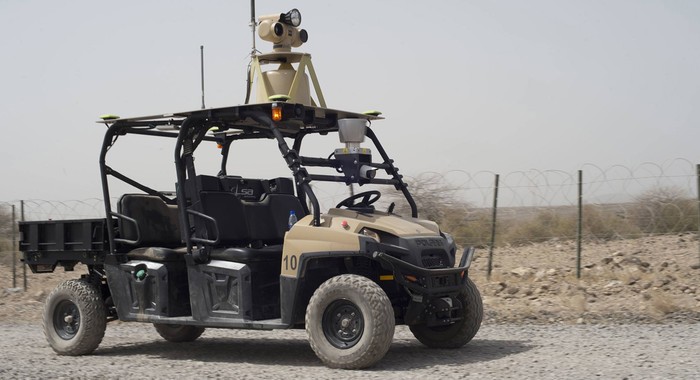
Military embraces autonomous vehicles for safer logistics
More than half of combat casualties involve soldiers transporting gear or other goods.
As automakers race to bring self-driving cars to market, the US military is pursuing parallel technology to help keep soldiers out of harm's way on global battlefields.
Civilians might assume the vast majority of combat casualties occur during front-line battles. The reality is not quite so, however, as 52 percent of casualties can be tied to logistics operations as soldiers face attacks when transporting gear, food or other necessary materials.
"You're in a very vulnerable position when you're doing that kind of activity," Michael Griffin, the undersecretary of defense for research and engineering, said at a recent hearing, as quoted by Bloomberg. "If that can be done by an automated unmanned vehicle with a relatively simple AI driving algorithm where I don't have to worry about pedestrians and road signs and all of that, why wouldn't I do that?"
The Pentagon is confident the Army will begin deploying self-driving vehicles in theater before Waymo officially launches its first formal service in the civilian market.
To be fair, the military is developing the technology with an entirely different list of goals and limitations compared to civilian autonomous vehicles. The Army's automated vehicles will presumably be monitored remotely and support remote control if any difficulties are encountered. Logistics routes in combat zones may bring more challenges than US roads in terms of lane markings and traffic, but the vehicles will likely be equipped with much more capable sensor systems that are too costly for civilian vehicles.
Notably, many of the engineers employed by the automotive industry got their feet wet with Defense Advanced Research Projects Agency involvement. The current market leader, Waymo, started with a team of Google engineers who created an autonomous Volkswagen Touareg to win the 2005 DARPA Grand Challenge, a competition specifically designed to promote development of autonomous driving technology.
Now that automakers are pumping billions of dollars into development projects, parallel development for civilian and military purposes will presumably accelerate progress on both fronts.